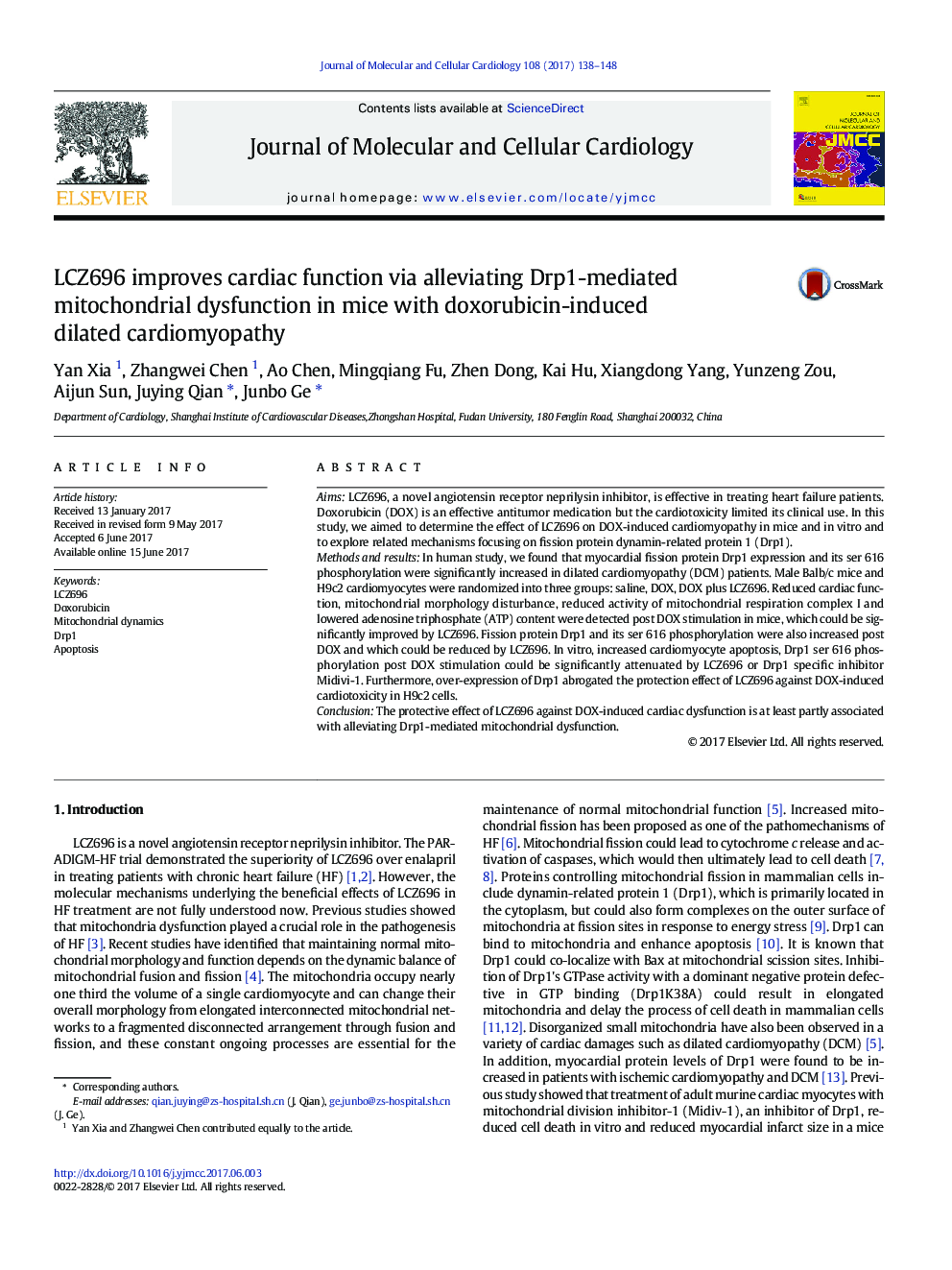| Article ID | Journal | Published Year | Pages | File Type |
|---|---|---|---|---|
| 5533543 | Journal of Molecular and Cellular Cardiology | 2017 | 11 Pages |
â¢The important role of mitochondrial fission in the pathogenesis of heart failure has been observed in different models.â¢Targeting Drp1 as a potential therapeutic option for heart failure has demonstrated effective and feasible.â¢LCZ696 in heart failure therapy could be attributed to its modulating role on Drp1 signaling.
AimsLCZ696, a novel angiotensin receptor neprilysin inhibitor, is effective in treating heart failure patients. Doxorubicin (DOX) is an effective antitumor medication but the cardiotoxicity limited its clinical use. In this study, we aimed to determine the effect of LCZ696 on DOX-induced cardiomyopathy in mice and in vitro and to explore related mechanisms focusing on fission protein dynamin-related protein 1 (Drp1).Methods and resultsIn human study, we found that myocardial fission protein Drp1 expression and its ser 616 phosphorylation were significantly increased in dilated cardiomyopathy (DCM) patients. Male Balb/c mice and H9c2 cardiomyocytes were randomized into three groups: saline, DOX, DOX plus LCZ696. Reduced cardiac function, mitochondrial morphology disturbance, reduced activity of mitochondrial respiration complex I and lowered adenosine triphosphate (ATP) content were detected post DOX stimulation in mice, which could be significantly improved by LCZ696. Fission protein Drp1 and its ser 616 phosphorylation were also increased post DOX and which could be reduced by LCZ696. In vitro, increased cardiomyocyte apoptosis, Drp1 ser 616 phosphorylation post DOX stimulation could be significantly attenuated by LCZ696 or Drp1 specific inhibitor Midivi-1. Furthermore, over-expression of Drp1 abrogated the protection effect of LCZ696 against DOX-induced cardiotoxicity in H9c2 cells.ConclusionThe protective effect of LCZ696 against DOX-induced cardiac dysfunction is at least partly associated with alleviating Drp1-mediated mitochondrial dysfunction.
